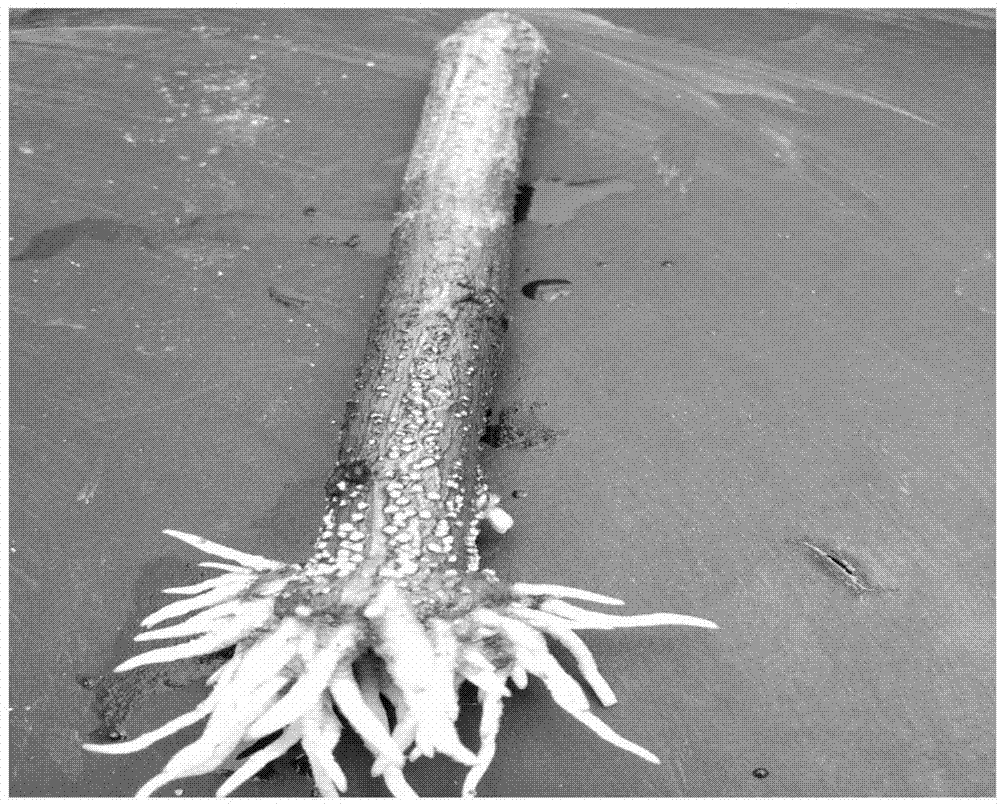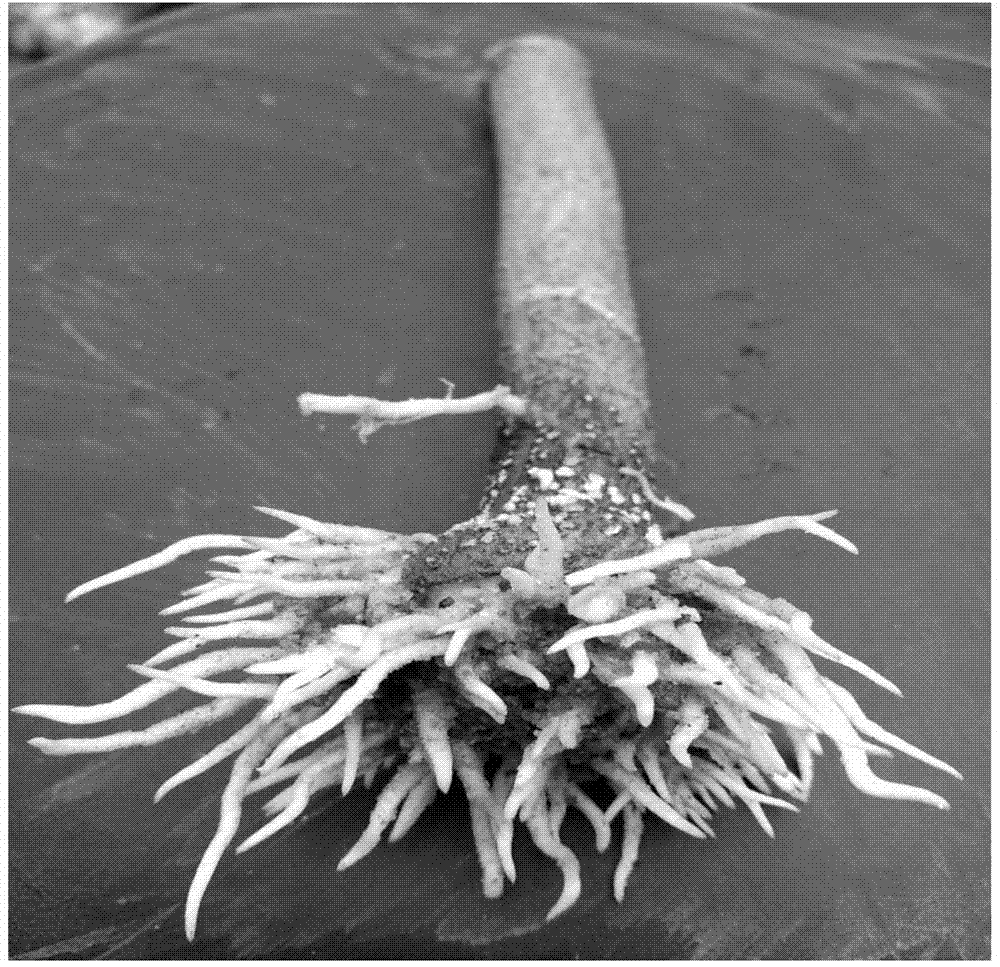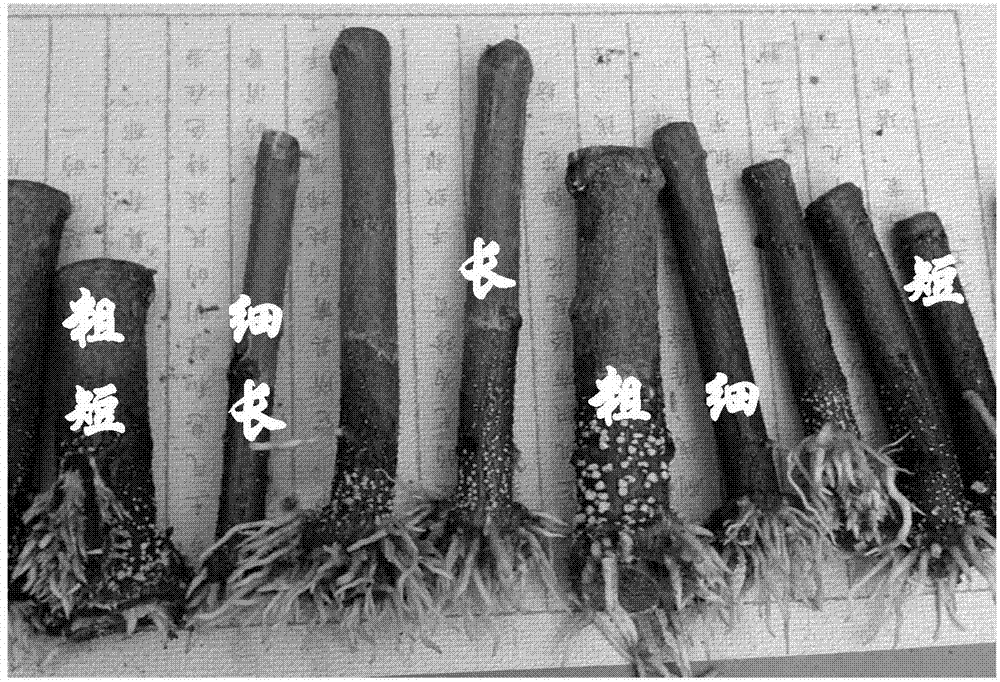Cutting rooting method for hard branches of robinia pseudoacacia
A technology of hard branch cuttings and black locust, which is applied in the field of plant propagation, can solve the problems of not being able to meet the production needs, the long production cycle of the grafting method, and the high requirements of the test conditions, so as to achieve large-scale seedling production, increase permeability, and good rooting effect Effect
- Summary
- Abstract
- Description
- Claims
- Application Information
AI Technical Summary
Problems solved by technology
Method used
Image
Examples
Embodiment 1
[0029] 1. Selection and preparation of cuttings: on March 12, collect robust, disease-free 1-year-old branches of Robinia pseudoacacia as cuttings, trim the branches so that their average length is 10-12 cm, and prepare cuttings for later use;
[0030] 2. Seedbed establishment and plastic arch shed construction: dig a foundation pit with a width of 120cm and a depth of 30cm in the field (the length depends on the number of cuttings), mix clean river sand and field soil in a certain proportion, and then backfill the foundation pit to It is level with the ground and serves as a cutting propagation area. Use bamboo pyrene with a width of about 4cm and a length of 200cm to insert into the soil to make an arch. After cutting, cover with plastic film and compact the surrounding with soil to make a simple plastic shed;
[0031] 3. Pretreatment of cuttings: dip the trimmed cuttings with 75% alcohol for quick treatment, and then soak them in ABT1 rooting powder solution with a concentr...
Embodiment 2
[0036]Except that No. ABT1 rooting powder soaking time is 15s, 15min and 30min, all the other operations are the same as in Example 1, after 2 months, the statistical results show that the rooting rates are respectively 1.67%, 8.33% and 18.33%.
Embodiment 3
[0038] Except that No. ABT1 rooting powder solution concentration is 200, 400, 800 and 1000ppm, soaks 30min respectively, all the other operations are identical with embodiment 1, statistical result after 2 months, rooting rate is 6.67%, 11.67%, 21.67% and 43.33%.
PUM
| Property | Measurement | Unit |
|---|---|---|
| Depth | aaaaa | aaaaa |
Abstract
Description
Claims
Application Information
 Login to View More
Login to View More - R&D
- Intellectual Property
- Life Sciences
- Materials
- Tech Scout
- Unparalleled Data Quality
- Higher Quality Content
- 60% Fewer Hallucinations
Browse by: Latest US Patents, China's latest patents, Technical Efficacy Thesaurus, Application Domain, Technology Topic, Popular Technical Reports.
© 2025 PatSnap. All rights reserved.Legal|Privacy policy|Modern Slavery Act Transparency Statement|Sitemap|About US| Contact US: help@patsnap.com



